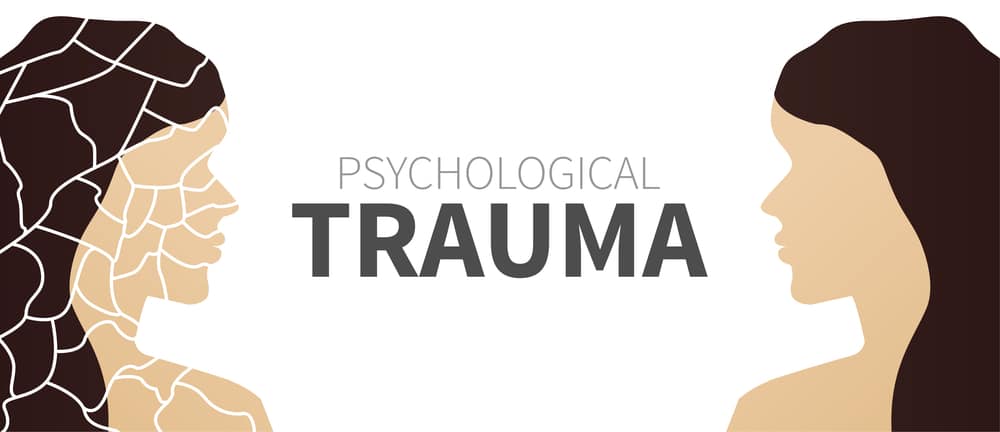
Psychological trauma is a serious problem that affects many people, regardless of their age, gender, or social status. Traumatic events can lead to a range of psychological problems, including anxiety, depression, and post-traumatic stress disorder (PTSD). But trauma can also have actual physical effects on the brain, changing the way it functions and even its structure.
The Effects of Trauma on the Brain
When a person experiences trauma, it can activate the body’s stress response system, releasing hormones like cortisol and adrenaline. This can lead to a range of physical symptoms, including increased heart rate and blood pressure, rapid breathing, and perspiration. But trauma can also affect the brain in more subtle ways.
One of the most significant effects of trauma on the brain is the way it can change the structure of the hippocampus. The hippocampus is a region of the brain that is important for memory and learning. Studies have shown that trauma can shrink the hippocampus, which can lead to memory problems and difficulties with learning and concentration.
Trauma can also affect the prefrontal cortex, which is responsible for decision-making, impulse control, and social behavior. Studies have shown that trauma can reduce the size of the prefrontal cortex, making it harder for people to regulate their emotions and behavior.
Finally, trauma can affect the amygdala, which is responsible for processing emotions. Trauma can make the amygdala more reactive, leading to heightened emotional responses and increased anxiety.
Psychological Trauma and Psychedelic Transformation
Treating trauma can be a long and difficult process, but it is possible to mitigate its effects on the brain. Psychotherapy, including cognitive-behavioral therapy and exposure therapy, can help people process traumatic memories and reduce symptoms of PTSD.
We are combining these powerful therapy methods at Evolution Retreats with transformational psilocybin ceremonies to initiate rapid changes in the brain structures. Psilocybin is known for its neurogenerative qualities, but it does not rewire your brain per say. It gives you the chance to restructure your neural connections in a way that is more aligned with your immediate reality, and supporting therapy containers at Evolution Retreats solidifies these changes.
Overall, it is important to recognize the physical effects of trauma on the brain and to seek help if you or someone you know has experienced trauma and its many destructive effects. With the correct treatment and support, it is possible to recover from the effects of trauma and to lead a fulfilling life!
Evolution Retreats wants to be part of that “correct treatment and support” for our visitors to Tensing Pen. Our team of psilocybin facilitators include a psychotherapist, coach, licensed counselor and psychiatric nurse practitioner – while all of our facilitators are on-staff to provide positive, transformative guidance and support during your psychedelic experiences with us during your psilocybin retreat week.
View testimonials from our guests about their experiences with Evolution Retreats. Curious and ready to begin a remarkable new chapter of your life? Please begin by completing our intake form here. If you have questions before engaging with us, use our easy form and ask away!
Source:
Sequential fear generalization and network connectivity in trauma exposed humans with and without psychopathology by Xi Zhu et al. Communications Biology. Published November 2022.
DOI: 10.1038/s42003-022-04228-5.

Steve is the Executive Director of New Pathways Clinic, our sister company that provides Ketamine treatments for treatment resistant psychiatric conditions in Cleveland, OH. Motivated by his own success in achieving remission for multiple psychiatric diagnoses through various psychedelic therapies, he opened New Pathways Clinic and partnered with Evolution Resorts to help others struggling achieve mental wellness. His goal is to make sure the Evolution Resorts provides the same level of care to its patrons that can be expected from future psychedelic clinics in America once psilocybin is authorized by the FDA as a medicine for depression and other mental health conditions.
Ever since he graduated from Ohio State with a major in Psychology, he has not stopped pursuing knowledge about new treatments available in the realm of mental health. As a vigorous consumer of research publications, he will always be ready to answer any questions anyone has about psychedelic therapies or alternative options for treatment in the United States. Steve will ensure Evolution Resorts continues to update its procedures to match the most up to date science on psilocybin therapy.



